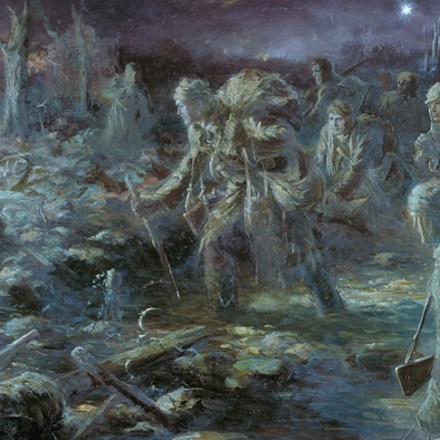The man who disappeared | 22 March 2018
On a night in Paris in 1914, Gertrude Stein was walking with Picasso when the first camouflaged trucks passed by. ‘We had heard of camouflage,’ Stein recalled, ‘but we had not seen it, and Picasso, amazed, looked at it and then cried out, yes it is we who made it, that is Cubism.’ The art













